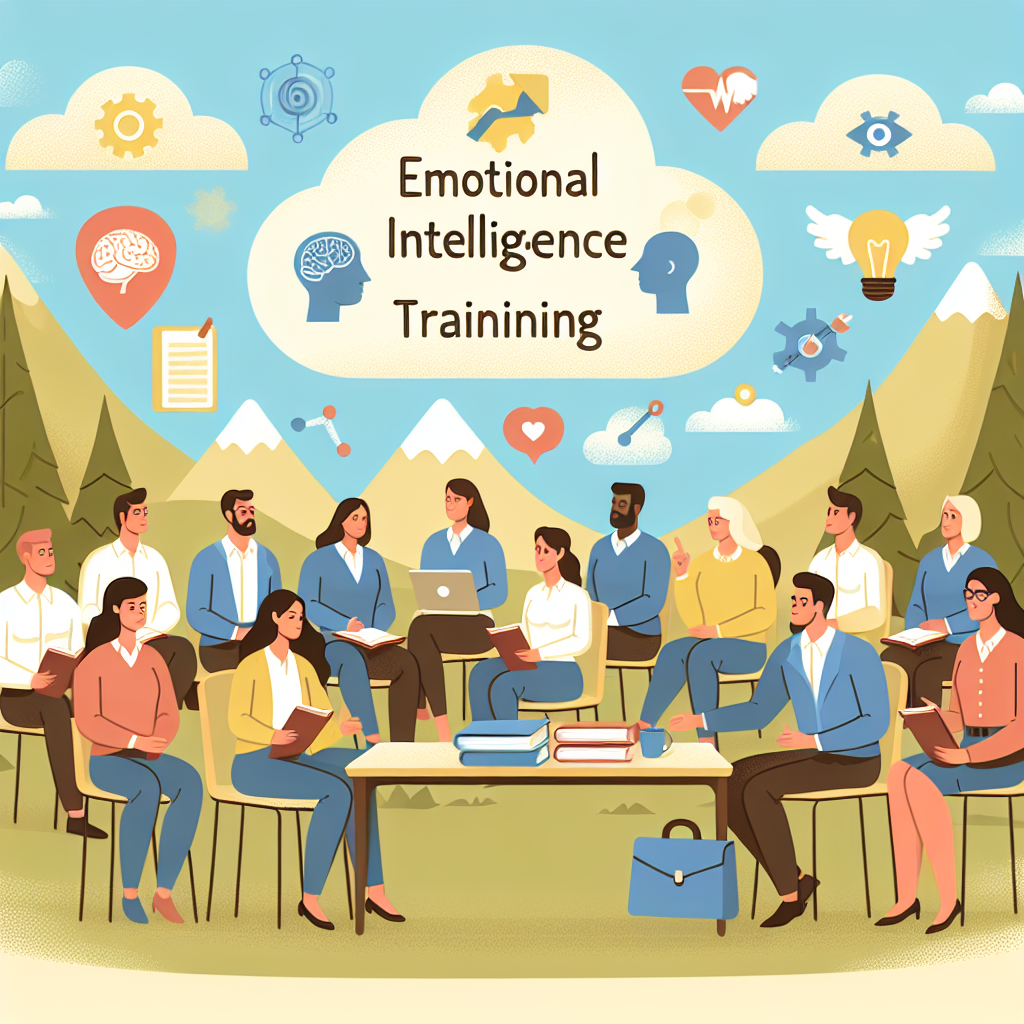Legal Updates and Ongoing Learning for Mediators
Mastering Mediation: Essential Training for Conflict Resolution
Introduction
Welcome to our guide on legal updates and ongoing learning for mediators. In today’s fast-paced legal landscape, it is essential for mediators to stay current and informed on the latest laws, regulations, and best practices in the field. Ongoing learning and professional development are crucial for mediators to maintain their skills, credibility, and effectiveness in resolving conflicts. In this guide, we will explore the importance of mediation education and training, the role of a mediator, key skills and techniques, accreditation and certification, industry trends and opportunities, and the impact of mediation education on conflict resolution.
What is Mediation Education?
Mediation education is the process of acquiring knowledge, skills, and understanding about the principles, processes, and techniques of mediation. It encompasses a wide range of topics, including conflict resolution, negotiation, communication, psychology, ethics, and legal updates. Mediation education can take various forms, such as courses, workshops, webinars, conferences, and self-study programs. It is designed to prepare individuals to become competent and effective mediators and to enhance the skills of current mediators.
The Benefits of Mediation Education
There are numerous benefits to investing in mediation education.
- Enhanced Mediation Skills: Mediation education helps mediators develop a deeper understanding of the mediation process and enhances their skills in facilitating communication, managing emotions, and resolving conflicts.
- Increased Credibility: By staying current on the latest legal updates and best practices, mediators can increase their credibility and trustworthiness with clients, attorneys, and other stakeholders.
- Better Outcomes: With the right training and skills, mediators can achieve better outcomes and help parties reach mutually beneficial agreements.
- Adaptability: Mediation education equips mediators with the knowledge and tools to adapt to different conflict situations and handle challenging cases effectively.
- Professional Development: Ongoing learning and professional development are essential for staying relevant and competitive in the field of mediation.
The Importance of Mediator Training
Mediator training is a crucial aspect of mediation education. It provides individuals with the necessary knowledge and skills to become competent and effective mediators. Mediator training typically covers topics such as conflict resolution theory, communication, negotiation, ethics, and legal updates. It also includes practical exercises and case studies to help mediators apply their skills in real-world situations.
Understanding the Role of a Mediator
A mediator is a neutral third party who facilitates communication and negotiation between conflicting parties to help them reach a mutually agreeable resolution. Mediators do not make decisions or impose solutions but instead, guide parties towards finding their own solutions. They provide a safe and confidential space for parties to express their concerns, clarify misunderstandings, and explore options for resolution.
The role of a mediator requires a high level of emotional intelligence, communication skills, and the ability to remain impartial and unbiased. Mediators must also have a thorough understanding of the mediation process and be able to adapt to different conflict situations and personalities.
Key Skills and Techniques for Mediators
Effective mediators possess a range of skills and techniques that enable them to facilitate communication and resolve conflicts. These include:
- Active Listening: Mediators must be skilled listeners who can understand and empathize with the perspectives and emotions of each party.
- Communication Skills: Mediators must have excellent communication skills to facilitate productive dialogue and manage the emotions of the parties involved.
- Empathy: Mediators must be able to put themselves in the shoes of each party and understand their perspectives and underlying motivations.
- Problem-Solving: Mediators must be able to identify the root causes of a conflict and help parties find creative and mutually beneficial solutions.
- Neutrality and Impartiality: Mediators must remain neutral and impartial throughout the mediation process to ensure fairness and trust.
Accreditation and Certification for Mediators
Accreditation and certification provide a way for mediators to demonstrate their knowledge, skills, and professionalism to clients and other stakeholders. Accreditation involves an independent review and validation of a mediator’s education, training, and experience by a recognized organization. Certification, on the other hand, is a voluntary process in which mediators demonstrate a certain level of competency through exams, case studies, and other requirements.
There are various organizations that offer accreditation and certification for mediators, such as the International Mediation Institute (IMI), the Association for Conflict Resolution (ACR), and the American Bar Association (ABA). It is important to research and choose a reputable and recognized organization for accreditation and certification.
Industry Trends and Opportunities in Mediation Education
The field of mediation is constantly evolving, and it is important for mediators to stay updated on the latest trends and opportunities. Some of the current trends in mediation education include:
- Online Education: With the rise of virtual platforms and technology, online education has become a popular and convenient option for mediators to continue their learning and professional development.
- Specialized Training: Many mediators are seeking specialized training in niche areas such as workplace mediation, family mediation, and online mediation.
- Collaboration with Other Professionals: Mediators are increasingly collaborating with other professionals such as therapists and lawyers to provide more comprehensive and effective dispute resolution services.
- Continuing Education Requirements: Some organizations have implemented continuing education requirements for accredited mediators to ensure they stay up-to-date on the latest legal updates and best practices.
The Impact of Mediation Education on Conflict Resolution
Mediation education plays a crucial role in improving the overall quality of conflict resolution. By equipping mediators with the necessary knowledge and skills, mediation education can help prevent and resolve conflicts in a more peaceful and productive manner. It also helps promote a culture of dialogue, understanding, and collaboration in society.
Additionally, mediation education can have a positive impact on the individuals involved in a conflict. By providing a safe and respectful environment for communication, mediation education can help parties better understand each other’s perspectives and find mutually beneficial solutions. This can lead to better relationships and a more sustainable resolution of the conflict.
Conclusion: The Value of Investing in Mediation Education and Training
In conclusion, mediation education and training are essential for mediators to stay current and effective in their profession. By continuously learning and developing their skills, mediators can enhance their credibility, adaptability, and outcomes in resolving conflicts. With the constant changes and advancements in the legal field, ongoing learning is crucial for mediators to maintain their relevance and contribute to a more peaceful and harmonious society.
If you are a mediator or aspiring mediator, we encourage you to invest in mediation education and training to stay at the top of your game and make a positive impact in the field of conflict resolution.
Special Considerations for Child Custody Mediation
Ultimate Guide to Child Custody Mediation: Tips and Guidelines
The Importance of Child Custody Mediation Guidelines for a Smooth Process
Child custody disputes can be emotionally and mentally draining for both parents and children. In order to minimize conflict and promote a positive co-parenting relationship, many families turn to child custody mediation as a way to resolve their differences and come to a mutually beneficial agreement. However, in order for the mediation process to be successful, it is important to understand and follow certain guidelines. These guidelines can help ensure a smooth and fair process that prioritizes the well-being of the child.
Understanding the Basics of Child Custody Mediation
Child custody mediation is a process in which a neutral third party, known as a mediator, helps parents come to an agreement regarding custody and parenting arrangements for their child. This process is often chosen as an alternative to going to court, as it can be less time-consuming, less expensive, and less adversarial. During mediation, parents are encouraged to work together to create a parenting plan that outlines custody arrangements and schedules, decision-making processes, and any other relevant details.
Researching the Mediation Process and Finding a Qualified Mediator
Before beginning the mediation process, it is important to do some research and educate yourself on what to expect. This will help you feel more prepared and confident during the mediation sessions. It is also crucial to find a qualified mediator who has experience in family law and specifically in child custody disputes. You can ask for recommendations from friends, family, or your lawyer, or do some online research to find a reputable mediator in your area.
Preparing Yourself Emotionally and Mentally for Child Custody Mediation
Child custody mediation can be a difficult and emotionally charged process. It is important to prepare yourself emotionally and mentally in order to approach the mediation sessions in a calm and rational manner. This may involve seeking counseling or therapy, talking to trusted friends or family members, or practicing self-care and stress management techniques. It is also important to set realistic expectations and be open to compromise in order to reach a mutually agreeable solution.
Gathering Necessary Documents and Information for Mediation
Before heading into mediation, it is important to gather any necessary documents and information that may be relevant to the custody dispute. This may include financial records, medical records, school records, and any other important documents related to your child. Make sure to have these organized and easily accessible during the mediation sessions to help facilitate the decision-making process.
Understanding the Role of the Mediator in the Process
The mediator’s role is to act as a neutral third-party facilitator and help guide the parents towards a mutually acceptable agreement. It is important to understand that the mediator does not make any decisions for the parents or impose any solutions. Instead, they help facilitate communication, clarify any misunderstandings, and offer suggestions for compromise.
Working Together with Your Ex-Partner to Create a Parenting Plan
Once the mediation process begins, both parents will have the opportunity to voice their concerns and preferences for custody arrangements. It is important to listen to each other’s perspectives and work together to come up with a parenting plan that is in the best interest of the child. This may involve making compromises and finding creative solutions that meet the needs of both parents.
Negotiating and Compromising for the Sake of Your Child
Negotiation and compromise are key components of the mediation process. It is important to approach these discussions with an open mind and be willing to make concessions in order to reach a mutually acceptable agreement. Keep in mind that the goal is to prioritize the well-being of the child and create a parenting plan that promotes a positive co-parenting relationship.
Finalizing the Agreement and Legal Considerations
Once an agreement has been reached, the mediator will put it into writing and both parents will have the opportunity to review and sign it. It is important to carefully review the agreement and make sure that all details are accurately reflected. If there are any legal considerations, such as child support or visitation rights, make sure to consult with a lawyer to ensure that the agreement is fair and legally binding.
Moving Forward with a Positive Co-Parenting Relationship
Child custody mediation is not just about reaching a custody agreement, but also about fostering a positive co-parenting relationship. Once the agreement has been finalized, it is important to continue to communicate and work together with your ex-partner for the sake of your child. This can involve regularly reviewing and updating the parenting plan, keeping each other informed about important decisions and changes, and maintaining a respectful and cooperative relationship.
Emotional Intelligence Training for Mediators
Maximizing Mediation Success: Mastering Emotional Intelligence
Introduction
Conflict is an inevitable part of human interaction, and as a mediator, it is crucial to have the skills and techniques to effectively resolve conflicts. One key aspect of successful conflict resolution is emotional intelligence, which refers to the ability to recognize, understand, and manage one’s own emotions and the emotions of others in a productive and empathetic manner.
Understanding Conflict Resolution
Conflict resolution is the process of addressing and resolving a dispute or disagreement between two or more parties in a constructive and mutually satisfactory manner. As a mediator, it is important to have a thorough understanding of the various approaches and theories of conflict resolution in order to effectively navigate different situations and dynamics.
The Role of Emotional Intelligence in Conflict Resolution
Emotional intelligence plays a vital role in conflict resolution as it allows for a deeper understanding and management of emotions in a conflict. Mediators with high emotional intelligence are better able to control their own emotions, remain calm and objective, and build rapport with the parties involved. Additionally, they are able to read and interpret the emotions of others, which can aid in finding a resolution that takes into account the needs and concerns of all parties.
Identifying Emotional Triggers in Conflict
In order to effectively manage emotions in a conflict, it is important to first identify the emotional triggers that may be present. This could include past experiences, personal biases, or specific topics that are sensitive for the parties involved. As a mediator, it is important to be aware of these triggers and address them in a sensitive and respectful manner.
Techniques for Managing Emotions in Conflict
There are several techniques that can be used to manage emotions in a conflict. These include deep breathing exercises, taking a break to cool down, and reframing negative thoughts. Additionally, it is important for mediators to model effective emotional management by remaining calm and composed, even in the face of heated emotions from the parties involved.
Active Listening for Effective Resolution
Active listening is a key skill in conflict resolution, as it allows for a deeper understanding of the perspectives and concerns of all parties involved. This involves giving full attention to what is being said, asking clarifying questions, and summarizing to ensure understanding. Active listening also involves nonverbal cues, such as maintaining eye contact and using appropriate body language to convey empathy and openness.
Empathy and Perspective-Taking in Conflict Resolution
Empathy is the ability to understand and share the feelings of another person. It is a crucial aspect of conflict resolution as it allows for a deeper understanding of the emotions and perspectives of all parties involved. As a mediator, it is important to practice empathy and encourage the parties to consider each other’s perspectives, which can help to bridge the gap and find common ground for resolution.
Using Nonviolent Communication in Conflict Resolution
Nonviolent communication is a communication approach that focuses on expressing needs and feelings in a non-threatening and respectful manner. This can be particularly useful in conflict resolution as it encourages open and honest communication without the use of blame or aggression. Mediators can use this approach to facilitate productive discussions and find solutions that meet the needs of all parties involved.
Managing Power Dynamics in Conflict Resolution
In many conflicts, there may be power imbalances between the parties involved. This can make it challenging to reach a resolution that is fair and satisfactory for all. As a mediator, it is important to be aware of these power dynamics and take steps to ensure that all parties feel heard and respected. This could include giving equal speaking time, actively listening to all perspectives, and reframing language that may be perceived as authoritative or dismissive.
Conclusion: Cultivating Emotional Intelligence for Successful Conflict Resolution
In conclusion, emotional intelligence is a crucial skill for mediators to possess in order to effectively manage and resolve conflicts. By understanding and managing emotions, using active listening and empathy, and utilizing nonviolent communication, mediators can facilitate productive and successful conflict resolution. It is an ongoing process of learning and development, and with practice, mediators can cultivate their emotional intelligence and become highly effective conflict resolution professionals.
Conflict Resolution Techniques in Mediation
Unlocking Mediation Success: Effective Conflict Resolution Strategies
Introduction
Mediation is a process used to resolve conflicts and disputes between two or more parties in a neutral and non-threatening environment. It involves a third-party mediator who helps facilitate communication and assists the parties in finding a mutually acceptable solution. In this article, we will explore various conflict resolution techniques that can be used in mediation to effectively resolve conflicts and reach a resolution.
Understanding Conflict Resolution
Conflict resolution is the process of finding a peaceful and mutually acceptable solution to a disagreement or dispute. It involves understanding the root cause of the conflict, identifying the needs and interests of the parties involved, and finding a resolution that addresses those needs and interests.
In the context of mediation, conflict resolution also involves the mediator’s role in facilitating communication and guiding the parties towards reaching a resolution. The mediator must remain neutral and non-judgmental, creating a safe and respectful environment for the parties to express their concerns and work towards a solution.
The Importance of Mediation in Conflict Resolution
Mediation is a valuable tool in resolving conflicts because it allows the parties to have control over the outcome. Unlike other methods such as litigation or arbitration, where a third party makes the final decision, mediation empowers the parties to come up with a solution that meets their needs and interests.
Mediation also promotes communication and collaboration between the parties, leading to a more sustainable and long-term resolution. It allows for the exploration of creative solutions that may not be possible in a court of law, where decisions are often binary and limited.
Developing Effective Communication Skills
Effective communication is crucial in mediation as it allows the parties to express their concerns and needs clearly. It also helps build trust and understanding between the parties, laying the foundation for a successful resolution.
As a mediator, it is essential to develop strong communication skills, including active listening, empathy, and the ability to reframe and clarify information. These skills can help diffuse tense situations and foster a more productive dialogue between the parties.
Active Listening Techniques for Effective Mediation
Active listening is a critical skill for mediators as it allows them to understand the parties’ perspectives and needs better. It involves giving the speaker undivided attention, using non-verbal cues to show engagement, and asking clarifying questions to ensure understanding.
Active listening also involves restating and summarizing what the parties have said to ensure that their message has been accurately understood. This technique can help prevent misunderstandings and promote effective communication.
Identifying Triggers and Emotions in Conflict
Emotions can often run high in conflicts, making it challenging to reach a resolution. As a mediator, it is essential to be able to identify and manage these emotions effectively. This involves being aware of one’s biases and triggers and understanding how they may impact the mediation process.
When emotions arise during a mediation session, it is essential to acknowledge them and allow the parties to express themselves. The mediator should then guide the parties towards focusing on the issues at hand and finding a resolution without getting caught up in the emotions.
Collaborative Problem-Solving Strategies
Collaborative problem-solving is a technique used in mediation to help the parties work together and find a solution that meets everyone’s needs. It involves breaking down the problem into smaller, more manageable parts and brainstorming potential solutions for each part.
By involving all parties in the problem-solving process, collaborative problem-solving can help foster a sense of ownership and commitment to the resolution. The mediator’s role is to guide and facilitate this process, ensuring that all parties have a chance to contribute and be heard.
Techniques for Managing Power Imbalances in Mediation
Power imbalances can make it challenging to reach a resolution in mediation. These imbalances can be based on factors such as age, race, gender, or socio-economic status. As a mediator, it is crucial to be aware of these imbalances and take steps to address them.
One technique for managing power imbalances is to use a caucus or separate meeting with each party to discuss their concerns and needs privately. This can help level the playing field and allow for more open and honest communication.
Another technique is to use a co-mediation approach, where two mediators work together to balance power dynamics and ensure that all parties have an equal voice in the process.
Addressing Cultural Differences in Conflict Resolution
Mediation often involves parties from different cultural backgrounds, and it is essential to be sensitive to these differences in the mediation process. This involves understanding and respecting cultural norms, values, and communication styles.
As a mediator, it is essential to create a safe and inclusive environment for all parties, regardless of their cultural backgrounds. This can be achieved by acknowledging and valuing cultural differences, being respectful and non-judgmental, and using effective communication techniques to bridge any cultural gaps.
Conclusion: The Impact of Effective Conflict Resolution in Mediation
In conclusion, effective conflict resolution techniques are crucial in mediation as they help parties reach a resolution that meets their needs and interests. These techniques involve developing strong communication skills, actively listening to the parties, managing emotions and power imbalances, and being sensitive to cultural differences.
By using these techniques, mediators can create a safe and productive environment for parties to resolve conflicts and build stronger relationships. Effective conflict resolution in mediation can have a lasting impact, leading to more sustainable and peaceful resolutions and avoiding costly and time-consuming litigation.
Utilizing Supervision in Mediator Training
Maximizing Mediator Training: Effective Supervision Techniques
Introduction to Effective Supervision in Mediator Training
Effective supervision plays a critical role in mediator training, ensuring that mediators have the necessary skills and support to successfully facilitate conflict resolution. Mediation is a complex process that requires a combination of communication, negotiation, and problem-solving skills. Without proper supervision, mediators may struggle to effectively navigate difficult situations and maintain professionalism.
Understanding the Role of a Mediator
Before discussing the importance of supervision in mediator training, it is important to have a clear understanding of the role of a mediator. A mediator is a neutral third-party who facilitates communication and negotiations between conflicting parties. Mediators do not make decisions or take sides, but rather help parties find mutually agreeable solutions.
The role of a mediator requires a unique set of skills, including active listening, empathy, conflict resolution, and critical thinking. It is also important for mediators to remain impartial and neutral throughout the mediation process.
Importance of Supervision in Mediator Training
Supervision is a crucial component of mediator training as it provides mediators with guidance, support, and feedback on their skills and performance. It also allows mediators to reflect on and improve their techniques, ensuring they are prepared for any challenges that may arise during a mediation session.
Supervision can also help mediators develop leadership skills and enhance their ability to establish trust and rapport with participants. Through supervision, mediators can learn from experienced professionals and gain valuable insights into the mediation process.
Essential Skills for Effective Mediation
Effective mediation requires a combination of skills and techniques that can be learned and developed through training and supervision. Some essential skills for successful mediation include:
- Active Listening: Mediators must be able to listen actively and attentively to the concerns and perspectives of all parties involved in a conflict. This includes listening to both verbal and nonverbal communication.
- Empathy: Mediators should be able to understand and empathize with the feelings and perspectives of all participants, without taking sides or showing bias.
- Conflict Resolution: Mediators must have a strong understanding of conflict resolution techniques and be able to guide parties towards mutually beneficial solutions.
- Critical Thinking: Mediators should have strong critical thinking skills to help them analyze and understand complex situations and effectively facilitate discussions.
Building and Maintaining Rapport with Participants
A key aspect of effective mediation is the ability to build and maintain rapport with all participants. This requires mediators to establish trust, create a safe and comfortable environment, and communicate effectively with all parties.
Supervision can help mediators develop their interpersonal skills and learn how to build rapport with different types of individuals. Through role-playing and feedback, mediators can improve their ability to connect with participants and create a positive and productive mediation environment.
Dealing with Conflict and Difficult Situations
Conflict is an inevitable part of mediation, and mediators must be prepared to handle difficult situations and emotions. Through supervision, mediators can learn how to defuse tense situations, address conflicts, and handle strong emotions such as anger, frustration, and grief.
Supervision can also provide mediators with strategies for managing power imbalances and dealing with difficult personalities. This can help mediators maintain control and keep the mediation process on track.
Strategies for Effective Communication
Communication is a critical component of mediation, and mediators must be skilled at facilitating effective communication between parties. Through supervision, mediators can learn how to ask open-ended questions, paraphrase and reframe statements, and encourage active listening.
Supervision can also help mediators develop their nonverbal communication skills, such as body language and tone of voice. These skills can help mediators create a positive and productive atmosphere during mediation sessions.
Ethics and Professionalism in Mediation
Mediators must adhere to high ethical standards and maintain professionalism throughout the mediation process. This includes maintaining confidentiality, avoiding conflicts of interest, and remaining neutral and impartial.
Through supervision, mediators can learn about ethical best practices and how to navigate challenging ethical situations. Supervision can also help mediators reflect on their own biases and beliefs, ensuring they do not impact the mediation process.
Preparing for Different Types of Mediation Sessions
Supervision can also help mediators prepare for different types of mediation sessions, such as family disputes, workplace conflicts, or community conflicts. Through role-playing and feedback, mediators can develop their skills and techniques for different types of conflicts, ensuring they are well-equipped to handle any situation that may arise.
Measuring Success and Continued Growth in Mediation Skills
Finally, supervision can help mediators measure their success and continued growth in their mediation skills. Through regular check-ins and evaluations, mediators can receive feedback on their performance and identify areas for improvement.
Supervision also allows mediators to reflect on their progress and set goals for continued growth and development. This can help mediators become more effective and confident in their role as a mediator.
Marketing Strategies for Divorce Mediators
Boost Your Divorce Mediation Business: Effective Marketing Strategies
Introduction
Welcome to our guide on marketing strategies for divorce mediators! As a divorce mediator, your role is crucial in helping couples navigate the often complex and emotionally charged process of divorce. However, in order to be successful and reach potential clients, it is important to have a strong online presence and effective marketing strategies in place.
Understanding the Role of a Divorce Mediator
Before diving into marketing strategies, it is important to fully understand the role of a divorce mediator. Divorce mediation is a non-adversarial process in which a neutral third party, the mediator, helps couples reach a mutually satisfactory agreement on all aspects of their divorce. Unlike a traditional divorce where each party has their own lawyer, mediation offers a less expensive and more collaborative approach to resolving conflicts and reaching a resolution.
As a divorce mediator, your main goal is to facilitate communication and help couples work together to find solutions that meet the needs and interests of both parties. This requires strong communication and conflict resolution skills, as well as a deep understanding of family law and the divorce process.
Identifying Your Target Audience
The first step in developing effective marketing strategies is to identify your target audience. Who are the individuals or groups that are most likely to seek out your services as a divorce mediator? This could include couples who are considering divorce, individuals in the midst of a divorce, or even lawyers who are looking for alternative dispute resolution options for their clients.
Consider the demographics, behaviors, and pain points of your target audience. Are they typically middle-aged couples with children? Are they looking for a more amicable and cost-effective way to divorce? Understanding your target audience will help you tailor your marketing efforts and reach the right people.
Establishing a Strong Online Presence
In today’s digital age, having a strong online presence is crucial for any business, including divorce mediation services. This includes having a professional website, active social media accounts, and positive reviews on reputable websites. Your online presence is often the first impression potential clients will have of your services, so it is important to make it a good one.
Start by creating a professional website that includes information about your services, your qualifications and experience, and any testimonials or success stories from past clients. This will serve as your online “home base” and a place for potential clients to learn more about your services.
Incorporating SEO Keywords
Search engine optimization (SEO) is the process of improving your website’s visibility and ranking on search engine results pages. By using relevant keywords throughout your website and content, you can increase your chances of appearing at the top of search engine results when potential clients search for terms related to divorce mediation.
Do some research to identify the most common and relevant keywords for your services. This could include terms like “divorce mediation,” “conflict resolution,” or “family law.” Incorporate these keywords naturally throughout your website, including in your page titles, headings, and body text.
Utilizing Social Media Platforms
Social media can be a powerful tool for marketing your divorce mediation services. It allows you to connect with potential clients, share valuable information and resources, and demonstrate your expertise and credibility in the field.
Start by identifying the social media platforms that are most popular among your target audience. This could include Facebook, Twitter, LinkedIn, or even Instagram. Share relevant and helpful content, such as articles, tips, and success stories, and engage with your audience by responding to comments and messages.
Creating Engaging Content
Content marketing is another effective strategy for promoting your divorce mediation services. By creating valuable and informative content, you can establish yourself as an authority in the field and attract potential clients to your website.
Consider creating blog posts, videos, or infographics that address common questions and concerns related to divorce mediation. This could include information on the benefits of mediation, the divorce process, or tips for effective communication in a marriage. You can also repurpose this content for social media and email marketing.
Building Credibility and Trust
Building credibility and trust is essential for any service-based business, and this is especially true for divorce mediation. Clients need to feel confident and comfortable working with you during such a sensitive and important process.
One way to build credibility is to obtain positive reviews and testimonials from past clients. These can be featured on your website and social media accounts, and can also be shared with potential clients during consultations. You can also consider obtaining endorsements from reputable organizations or professionals in the field.
Utilizing Referral Marketing
Word-of-mouth marketing can be a powerful tool for promoting your divorce mediation services. Encourage satisfied clients to refer their friends and family to your services, and consider offering incentives for referrals. You can also reach out to lawyers, therapists, or other professionals who work with individuals going through a divorce, and establish partnerships for referral business.
Measuring and Evaluating Success
Finally, it is important to track and measure the success of your marketing efforts. This will help you determine which strategies are most effective and make adjustments as needed. Utilize tools like Google Analytics to track website traffic and engagement, and gather feedback from clients to see how they found out about your services.
Marketing strategies for divorce mediators will vary depending on your target audience and location, so it is important to regularly evaluate and adapt your approach to ensure you are reaching and connecting with potential clients.
Conclusion
Marketing your divorce mediation services may seem daunting, but with the right strategies in place, you can effectively reach and connect with potential clients. By understanding your target audience, establishing a strong online presence, and utilizing various marketing tactics, you can build a successful and reputable mediation practice. Remember to regularly evaluate and adjust your marketing efforts to ensure continued success in reaching and helping clients through the divorce process.
Handling High-Conflict Personalities in Mediation
Mastering Mediation: Dealing with Difficult Personalities
I. Understanding the Different Types of Difficult Personalities in Mediation
Mediation can be a highly effective way to resolve conflicts and reach agreements in various situations. However, it can also be challenging when dealing with difficult personalities. These individuals may exhibit behaviors that can make the mediation process more complicated and contentious. It is essential for mediators to understand the different types of difficult personalities they may encounter and how to effectively manage them. This understanding can help mediators navigate through conflicts and reach a successful resolution for all parties involved.
II. Techniques for Dealing with Aggressive Personalities in Mediation
Aggressive personalities can be difficult to handle in any situation, and mediation is no exception. These individuals may display hostility, defensiveness, and a strong tendency to attack or criticize others. When faced with an aggressive personality in mediation, it is crucial for mediators to remain calm and not take the behavior personally. The following techniques can be helpful in managing aggressive personalities:
- Active listening: This involves paying close attention to what the aggressive individual is saying and acknowledging their feelings and concerns. It can help de-escalate the situation and show that their voice is being heard.
- Empathy: Showing empathy towards the aggressive personality can help them feel understood and valued, which can help reduce their aggressive behavior.
- Reframing: This technique involves restating the aggressive person’s statements in a more positive or neutral way to help them see the situation from a different perspective.
- Setting boundaries: It is essential for mediators to establish ground rules and boundaries for acceptable behavior in the mediation process. This can help prevent the aggressive individual from crossing the line and becoming verbally or physically aggressive.
III. Tips for Handling Passive-Aggressive Behaviors in Mediation
Passive-aggressive behaviors can be challenging to handle in mediation because they are often subtle and indirect. These individuals may use sarcasm, backhanded compliments, and avoidance to express their frustrations and manipulate the situation. When dealing with passive-aggressive personalities in mediation, mediators can use the following tips:
- Direct communication: It is essential to encourage direct and honest communication from all parties involved in the mediation. This can help prevent passive-aggressive behaviors and promote open and productive dialogue.
- Address the behavior: Instead of ignoring or avoiding the passive-aggressive behavior, it is crucial to address it directly and acknowledge how it is affecting the mediation process.
- Clarify expectations: Mediators can set clear expectations for the mediation process and the behavior that is expected from all parties involved. This can help prevent passive-aggressive behaviors and promote a more positive and productive environment.
IV. Strategies for Managing Narcissistic Personalities in Mediation
Narcissistic personalities can be challenging to handle in mediation because these individuals often have an inflated sense of self-importance, a need for admiration, and a lack of empathy for others. They may also have a desire to control the situation and dominate the conversation. When dealing with narcissistic personalities in mediation, the following strategies can be helpful:
- Set clear boundaries: It is essential for mediators to establish boundaries for acceptable behavior and prevent the narcissistic individual from dominating the conversation or controlling the mediation process.
- Redirect attention: When the narcissistic individual starts to dominate the conversation, mediators can redirect their attention back to the topic at hand and encourage input from other parties involved.
- Maintain neutrality: It is crucial for mediators to remain neutral and not take sides in the mediation process, as this can trigger defensive or aggressive behavior from the narcissistic individual.
V. How to Handle Manipulative Tactics in Mediation
Manipulative tactics can be used by individuals in mediation to gain an advantage or manipulate the situation to their benefit. These tactics can include making threats, withholding information, or using emotional manipulation to sway the outcome of the mediation. When dealing with manipulative tactics in mediation, the following approaches can be effective:
- Transparency: It is essential for mediators to be transparent and communicate openly about the process and any potential consequences of using manipulative tactics.
- Identify the tactics: Mediators can help parties involved in mediation recognize and understand manipulative tactics. This can help prevent them from being used and promote more productive communication.
- Focus on interests: Instead of getting caught up in the manipulative behavior, mediators can encourage parties to focus on their underlying interests and work towards finding a mutually beneficial solution.
VI. Dealing with Emotional and Sensitive Personalities in Mediation
Emotional and sensitive personalities can be challenging to manage in mediation because they may be easily triggered and have difficulty regulating their emotions. These individuals may become defensive, emotional, or shut down during the mediation process. When dealing with emotional and sensitive personalities, the following strategies can be helpful:
- Empathize: It is essential for mediators to show empathy towards the emotions and concerns of these individuals. This can help them feel understood and more willing to participate in the mediation process.
- Validate emotions: Instead of dismissing or minimizing the emotions of these individuals, it is crucial to validate and acknowledge how they are feeling. This can help them feel heard and reduce their emotional response.
- Take breaks: If the emotional intensity becomes too high, mediators can suggest taking a break to allow everyone to calm down and regroup before continuing the mediation process.
VII. Managing Communication Issues with Difficult Personalities in Mediation
Effective communication is crucial for successful mediation, but it can be challenging when dealing with difficult personalities. These individuals may have communication issues such as aggression, defensiveness, or passive-aggressive behavior. When faced with communication challenges in mediation, the following strategies can be effective:
- Active listening: As mentioned earlier, active listening can help de-escalate conflicts and promote understanding between parties with different communication styles.
- Encourage respectful communication: Mediators can establish ground rules for respectful communication and enforce them to prevent conflicts from escalating.
- Use neutral language: Instead of taking sides or using language that may trigger defensiveness, mediators can use neutral language to help parties feel more comfortable expressing themselves.
VIII. Building Rapport with Challenging Individuals in Mediation
Building rapport with difficult personalities can be challenging, but it is crucial for creating a positive and productive mediation environment. Rapport can help establish trust and understanding, which can lead to more effective communication and conflict resolution. The following techniques can be helpful in building rapport with challenging individuals:
- Show empathy: As mentioned earlier, showing empathy towards difficult personalities can help them feel understood and build trust in the mediation process.
- Use humor: Appropriate and light-hearted humor can help diffuse tension and create a more relaxed atmosphere in the mediation room.
- Find common ground: Mediators can help parties find common ground or shared interests to build rapport and create a more collaborative environment.
IX. Setting Boundaries and Maintaining Control in Difficult Mediation Sessions
As a mediator, it is essential to establish and maintain control in difficult mediation sessions. This can help prevent conflicts from escalating and ensure that all parties involved are heard and respected. The following techniques can be useful in setting boundaries and maintaining control in challenging mediation sessions:
- Set ground rules: Clearly define the ground rules and expectations for the mediation process at the beginning of the session to prevent any inappropriate behaviors.
- Be assertive: It is crucial for mediators to be assertive and confident in enforcing boundaries and maintaining control over the mediation process.
- Redirect attention: When conflicts become heated or unproductive, mediators can redirect attention to the topic at hand and prevent parties from getting sidetracked.
X. The Importance of Self-Care and Support for Mediators in Dealing with Difficult Personalities
Dealing with difficult personalities in mediation can be emotionally and mentally draining for mediators. Therefore, it is crucial to practice self-care and seek support to prevent burnout and maintain a positive mindset. The following tips can be helpful for mediators in managing their well-being while dealing with challenging individuals in mediation:
- Take breaks: Mediators can take breaks in between mediation sessions to recharge and refocus.
- Seek support: It is essential for mediators to have a support system of colleagues or mentors who can provide advice and guidance.
- Practice self-care: Engage in activities and practices that promote relaxation, self-reflection, and a healthy work-life balance.
Technology Skills for Modern Divorce Mediators
Mastering Modern Divorce Mediation: Advanced Technology Skills
Introduction
In today’s digital age, technology is playing a significant role in various industries, including the field of divorce mediation. With the help of advanced technology, mediators can now conduct mediation sessions more efficiently and effectively, providing better outcomes for their clients. However, to take advantage of these technological advancements, divorce mediators need to have the necessary skills and knowledge to integrate technology into their practice.
Understanding the Role of Technology in Divorce Mediation
Divorce mediation is a process in which a neutral third party helps a couple reach agreements on various issues related to their divorce, such as child custody, finances, and property division. Traditionally, mediation sessions are conducted face-to-face in a physical location. However, with the rapid advancement of technology, virtual mediation and online tools have become more prevalent in the field of divorce mediation.
Technology in divorce mediation can include various digital tools and platforms used to facilitate communication, document sharing, and negotiation between the parties involved. These tools can range from online scheduling apps to video conferencing platforms and collaborative document sharing platforms.
How Advanced Technology is Changing Traditional Mediation Processes
The use of technology in divorce mediation is changing the traditional mediation process in several ways. First, it allows mediators to conduct sessions remotely, eliminating the need for physical locations and reducing travel time and costs for all parties involved. This can be especially beneficial for couples who live in different locations or have busy schedules.
Technology also allows for more efficient communication between the parties involved. With the use of video conferencing, mediators can conduct sessions with multiple parties simultaneously, reducing the time and effort needed to schedule individual meetings. Additionally, digital communication tools such as email and messaging platforms can be used to facilitate communication outside of mediation sessions.
Furthermore, technology allows for easier document sharing and collaboration between the parties and the mediator. Instead of exchanging physical copies of documents, digital platforms can be used to securely share and edit documents in real-time, making the process more efficient and transparent.
The Benefits of Utilizing Technology in Divorce Mediation
Incorporating technology into divorce mediation can bring numerous benefits to both the mediator and the parties involved. For mediators, it can increase efficiency and productivity by eliminating administrative tasks and reducing the time needed for scheduling and document exchange. This, in turn, can increase the number of cases a mediator can handle and lead to more revenue.
For the parties involved, technology can make the mediation process more convenient and less time-consuming. With the use of remote mediation and online tools, parties do not have to take time off work or travel long distances for sessions. Additionally, technology can make communication and document sharing more accessible, leading to a smoother and more transparent negotiation process.
Exploring Different Technology Tools for Divorce Mediation
There are various technology tools available for divorce mediators to incorporate into their practice. These include virtual mediation platforms, online scheduling apps, digital communication tools, and collaborative document sharing platforms.
Virtual mediation platforms, such as Zoom, allow mediators to conduct sessions remotely and provide features such as screen sharing and breakout rooms for private conversations between the mediator and individual parties. Online scheduling apps, such as Calendly, can make scheduling sessions with multiple parties more efficient and convenient.
Digital communication tools, such as email and messaging platforms, can be used to facilitate communication between the parties outside of mediation sessions. Collaborative document sharing platforms, such as Google Drive, allow for secure and real-time document sharing and editing between the mediator and the parties involved.
How to Properly Integrate Technology into Mediation Sessions
To effectively integrate technology into mediation sessions, mediators need to have the necessary skills and knowledge. This includes being familiar with various technology tools, understanding how to use them effectively, and being able to troubleshoot any issues that may arise.
It is also crucial for mediators to communicate with the parties involved about the use of technology and ensure that everyone is comfortable and able to use the tools effectively. Additionally, mediators should be prepared with backup plans in case of technical difficulties to ensure that the mediation session can continue seamlessly.
Addressing Concerns and Challenges with Technology in Divorce Mediation
While technology brings many benefits to the mediation process, there are also concerns and challenges that need to be addressed. One of the main concerns is the security and confidentiality of information shared through digital platforms. Mediators must ensure that they are using secure and encrypted platforms to protect sensitive information.
Another challenge is the potential for technology to create barriers between the parties, making it more challenging to establish trust and reach agreements. Mediators must be aware of this and make an effort to create a comfortable and inclusive environment for all parties involved.
The Role of Technology in Post-Divorce Communication and Co-Parenting
Technology not only plays a significant role in the mediation process itself, but it can also be beneficial in post-divorce communication and co-parenting. With the use of digital communication tools, divorced parents can easily communicate and share information about their children’s well-being, schedules, and important events. This can help to reduce conflicts and improve co-parenting relationships.
Best Practices for Utilizing Technology in Divorce Mediation
To effectively utilize technology in divorce mediation, mediators should follow these best practices:
- Stay up to date with technological advancements and continuously expand your skills and knowledge.
- Communicate with the parties involved to ensure that everyone is comfortable and able to use the technology tools effectively.
- Have backup plans in case of technical difficulties.
- Use secure and encrypted platforms to protect sensitive information.
- Create a comfortable and inclusive environment for all parties during mediation sessions.
- Continuously gather feedback and make improvements to the use of technology in your practice.
Embracing Advanced Technology for Successful and Efficient Divorce Mediation Processes
In conclusion, technology skills are becoming increasingly essential for modern divorce mediators. The use of technology brings numerous benefits, such as increased efficiency, improved communication, and easier document sharing. However, it is crucial for mediators to continuously develop their skills and knowledge and address concerns and challenges related to technology. By embracing advanced technology and incorporating it into their practice, mediators can provide more successful and efficient divorce mediation processes for their clients.
Networking and Professional Development
Maximizing Networking for Career Growth
Introduction
Networking is a crucial aspect of career growth and professional development. It involves building and nurturing relationships with individuals in your industry, which can lead to opportunities, knowledge sharing, and support throughout your career. In today’s highly competitive job market, networking has become more important than ever before.
Why Networking is Crucial for Career Growth
Networking allows you to expand your professional circle and connect with people who can help you achieve your career goals. It also provides access to valuable resources, such as job opportunities, industry insights, and mentorship. In fact, studies have shown that a significant portion of job opportunities are filled through networking and personal connections.
In addition, networking can also boost your confidence, communication skills, and personal brand. By interacting with professionals in your field, you can gain valuable feedback and learn from their experiences and perspectives. This can help you develop a strong personal brand and reputation within your industry.
Establishing Your Personal Brand through Networking
Networking is a powerful tool for establishing and promoting your personal brand. When networking, you have the opportunity to showcase your skills, knowledge, and experience to potential employers or clients. By making a positive and memorable impression, you can increase your visibility and credibility within your industry.
Moreover, networking can also help you identify your unique strengths and values, which are crucial components of your personal brand. By connecting with professionals in your field, you can gain valuable insights and feedback on how to effectively present yourself and stand out in a competitive job market.
Utilizing Online Networking Platforms for Career Advancement
In today’s digital age, online networking has become a popular and effective way to connect with professionals and expand your network. Platforms like LinkedIn, Twitter, and Facebook allow you to connect with individuals in your industry, join industry-specific groups, and engage in discussions and knowledge sharing.
When utilizing online networking platforms, it is important to have a professional and up-to-date profile. This includes a clear and concise bio, a professional profile picture, and relevant skills and experience. You can also use these platforms to showcase your work, share industry insights, and connect with potential employers or clients.
Effective Networking Strategies for Introverts
Networking can be intimidating, especially for introverted individuals. However, being introverted does not mean that you cannot excel at networking. Here are some effective strategies for introverts to network effectively:
- Set realistic goals and expectations for networking events
- Arrive early to events to allow for one-on-one conversations before the crowd arrives
- Focus on quality over quantity – aim to make genuine connections with a few individuals rather than trying to meet everyone in the room
- Prepare and practice your introduction and conversation starters
- Take breaks when needed to recharge
Remember, networking does not have to be loud and outgoing. Introverts can excel at networking by utilizing their listening skills, asking thoughtful questions, and building meaningful connections with others in a more quiet and authentic manner.
Industry Events and Conferences: A Networking Goldmine
Industry events and conferences are excellent opportunities for networking and building connections in your field. These events bring together professionals from various organizations and industries, providing a diverse and valuable networking experience.
Before attending an industry event or conference, be sure to do your research and have a clear understanding of the event’s agenda and attendees. This will help you target and connect with individuals who align with your career goals and interests.
During the event, make an effort to attend networking sessions and engage in conversations with other attendees. Be sure to exchange contact information and follow up with your new connections after the event.
Nurturing Relationships for Long-Term Career Success
Networking is not just about making new connections – it also involves nurturing and maintaining existing relationships. Building strong and genuine connections with professionals in your field can lead to long-term career success.
One way to nurture relationships is by regularly staying in touch with your connections. This can be done through occasional emails, LinkedIn messages, or meeting for coffee. It is important to show genuine interest and support in your connections’ careers as well.
Another way to nurture relationships is by offering your support and expertise to your connections. This can be through mentoring, providing advice or resources, or making introductions to other professionals in your network. By being a valuable resource to others, you can strengthen and deepen your connections.
Leveraging LinkedIn for Professional Networking
LinkedIn is the largest professional networking platform in the world, with over 740 million members. It is an excellent tool for expanding your professional network, showcasing your skills and experience, and finding job opportunities.
To effectively utilize LinkedIn for professional networking, be sure to have a complete and up-to-date profile. This includes a professional profile picture, a compelling headline, and a well-written summary that showcases your skills and experience.
Additionally, participate in LinkedIn groups and discussions related to your industry to connect with like-minded professionals and engage in knowledge sharing. You can also reach out to individuals in your network for informational interviews or professional advice.
Networking Mistakes to Avoid in Your Career
While networking can be a valuable tool for career growth, there are certain mistakes that can hinder your success. These include:
- Being too focused on yourself and your own needs
- Not following up or staying in touch with your connections
- Being too aggressive or pushy in your networking approach
- Not listening or engaging in genuine conversations with others
- Not being open to networking opportunities outside of your comfort zone
By avoiding these mistakes, you can build strong and meaningful connections that can lead to long-term career success.
Maximizing the Benefits of Networking for Career Growth
Networking can provide numerous benefits for your career growth and development. To maximize these benefits, it is important to be proactive and consistent in your networking efforts. This includes regularly attending networking events, staying in touch with your connections, and continuously expanding your network.
In addition, always be prepared to give and receive support. Networking is a two-way street, and by offering your support and expertise to others, you can strengthen your connections and build a strong and supportive network.
Conclusion
Networking is a crucial aspect of career growth and professional development. It allows you to expand your professional circle, establish your personal brand, and gain access to valuable resources and opportunities. By utilizing effective networking strategies and continuously nurturing your relationships, you can achieve long-term career success and growth.
Cross-Cultural Competence in Divorce Mediation
Maximizing Success: Multicultural Divorce Mediation
Introduction to Multicultural Divorce Mediation
The increasing diversity of our society has led to a rise in multicultural marriages and subsequently, a rise in multicultural divorces. When couples from different cultural backgrounds decide to end their marriage, it can bring unique challenges that may not arise in homogenous marriages. These challenges can range from communication barriers to differing values and beliefs.
Traditionally, divorce proceedings have been adversarial in nature, with each party trying to get the most out of the settlement. However, this approach may not be suitable for multicultural divorces, where cultural differences can complicate the process. That’s where multicultural divorce mediation comes in. It is a process that utilizes culturally competent mediators to help couples from different cultures reach a mutually agreeable divorce settlement.
The Importance of Cultural Competency in Mediation
Cultural competency is the ability to understand, respect, and effectively communicate with individuals from diverse cultures. In the context of mediation, it involves being aware of one’s own cultural biases and having the skills to navigate cultural differences between parties. In multicultural divorce mediation, cultural competency is crucial as it allows mediators to bridge the gap between parties and facilitate a successful resolution.
Without cultural competency, mediators may unintentionally cause harm by imposing their own cultural values and beliefs on the parties, leading to a biased outcome. For example, a mediator from a Western culture may overlook or dismiss the importance of extended family involvement in decision-making for a couple from a collectivistic culture. This can lead to tension and mistrust between the parties, hindering the mediation process.
Understanding the Impact of Culture on Divorce
Culture plays a significant role in shaping our beliefs, values, and behaviors. In the context of divorce, it can greatly impact how a couple approaches and navigates the process. For example, in individualistic cultures, divorce is seen as a personal matter that should be handled between the two parties. On the other hand, in collectivistic cultures, the extended family is heavily involved in decision-making and may view divorce as a failure of the entire family.
Additionally, cultural differences can also affect how couples communicate and express their emotions. In some cultures, direct communication is preferred, while in others, indirect communication is more common. These differences can lead to misunderstandings and conflicts during the mediation process.
Benefits of Mediating Multicultural Divorces
There are many benefits to choosing mediation over traditional litigation for multicultural divorces. First and foremost, it allows for a more culturally sensitive approach to resolving conflicts. The mediator can create a safe and respectful environment where both parties feel heard and understood.
Mediation also gives parties more control over the outcome compared to court proceedings, where a judge makes the final decision. This can be especially important for couples from non-dominant cultures who may feel marginalized in the legal system. Mediation allows them to have a say in the outcome and tailor the agreement to their specific cultural needs and values.
Furthermore, mediation is generally a faster and less costly process than litigation, which can be particularly beneficial for couples from lower socioeconomic backgrounds who may not have the resources for lengthy court battles. It also has a higher success rate in reaching a mutually agreeable resolution, leading to a more amicable post-divorce relationship between the parties.
Addressing Cultural Differences in Mediation
One of the key challenges in multicultural divorce mediation is addressing cultural differences between the parties. Mediators must be aware of their own cultural biases and be sensitive to the cultural differences of the parties. This involves educating themselves on the cultures involved in the mediation and understanding how those cultural backgrounds may impact the conflict.
Mediators must also be skilled in creating a culturally sensitive and inclusive environment. This can involve using language and communication styles that are familiar and comfortable for the parties, as well as incorporating cultural rituals or practices that may help facilitate the mediation process.
It is also important for mediators to help the parties understand each other’s cultural perspectives and find common ground. This can be achieved through active listening and reframing techniques that help parties see the issue from the other’s point of view.
Techniques for Effective Communication in Multicultural Mediation
Effective communication is crucial for successful multicultural mediation. Mediators must be able to facilitate communication between parties who may have different communication styles, languages, or non-verbal cues. Some techniques that can help facilitate effective communication in multicultural mediation include:
- Active listening: This involves listening without judgment and seeking to understand the other person’s perspective.
- Clarification: Mediators can clarify and restate what each party is saying to ensure they are understanding each other correctly.
- Paraphrasing: This involves summarizing what has been said and checking for accuracy and understanding.
- Empathy: Showing empathy towards the parties can help build trust and understanding between them.
- Non-verbal cues: Mediators must be aware of non-verbal cues and body language that may convey different meanings in different cultures.
Dealing with Cultural Biases in Mediation
Cultural biases can be a significant barrier in multicultural mediation, and it is essential for mediators to be aware of and address these biases. If left unchecked, cultural biases can lead to unequal power dynamics between the parties and can hinder the mediation process.
One way to address cultural biases is through cultural competency training. This involves understanding one’s own biases and taking steps to address them. Mediators can also work with a co-mediator from a different cultural background to provide a more balanced perspective and ensure that both parties feel heard and understood.
Additionally, mediators must be careful not to stereotype or make assumptions about the parties based on their culture. Each individual is unique, and their cultural background is just one aspect of their identity.
Cultural Considerations in Child Custody Mediation
Child custody can be a particularly sensitive and contentious issue in divorce, and cultural differences can further complicate the process. In some cultures, extended family members play a significant role in raising children, while in others, parents have more autonomy in decision-making.
Mediators must be aware of these cultural differences and consider the best interests of the child when making custody arrangements. This may involve discussing and understanding each party’s cultural values and beliefs, and finding a solution that can accommodate both. It may also be helpful to involve a neutral party, such as a child specialist, who can provide insight into the child’s cultural needs and preferences.
Case Studies: Successful Multicultural Mediation
There have been many successful cases of multicultural mediation where parties from different cultural backgrounds have been able to reach a mutually agreeable resolution. In one case, a Filipino couple in the United States was able to successfully mediate their divorce with the help of a mediator from their same cultural background. The mediator was able to understand the cultural nuances involved and helped the couple reach a fair settlement that was in line with their cultural values.
In another case, a Jewish-American man and a Muslim-American woman were able to mediate their divorce despite their differing cultural and religious backgrounds. The mediator was able to create an inclusive and respectful environment that allowed the couple to focus on their common goals and reach a peaceful resolution.
Conclusion: Embracing Diversity in Divorce Mediation
In an increasingly diverse world, it is essential for mediators to be culturally competent and sensitive when handling multicultural divorces. By acknowledging and addressing cultural differences, mediators can help parties reach a fair and amicable resolution that considers their cultural values and needs.
Multicultural divorce mediation not only benefits the parties involved but also promotes cultural understanding and respect. By embracing diversity in divorce mediation, we can foster a more inclusive and peaceful society.

















